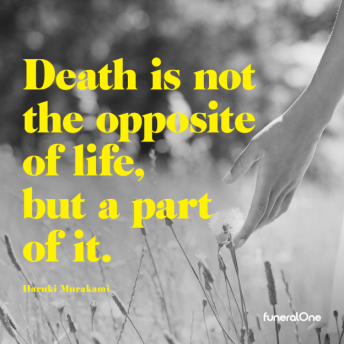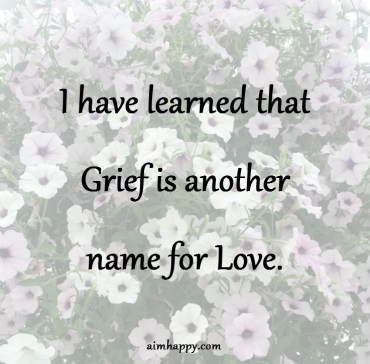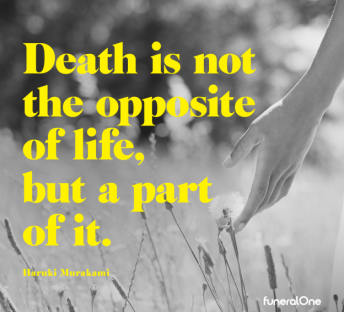Last fall I was listening to Rob Bell’s podcast in which he was having a conversation with the author of a memoir – one I probably never would have heard of had it not been for this conversation. I suspect the author got a spike in sales thanks to Rob! The author: Caleb Wilde. The book: Confessions of a Funeral Director. I thought the book sounded interesting enough to put on my Amazon wish list, but I didn’t end up buying it until a few months ago when Amazon alerted me that it was on sale.
I don’t like death. I mean, I’m not sure many people do. However, I think some people handle the realities of death better than I do. When either of my parents want to discuss something related to their end of life plans, I direct them to by older brother. I’ve accepted some responsibilities related to their deaths, but for the most part I don’t want anything to do with it. I don’t want to think about them dying. I don’t want to think about life without my parents around. So, I don’t.

I’m not sure where this fear comes from – it’s not like I’ve lost a large number of people. My friend Katy. My Grandma and Grandpa Augspurger. My Grandma Moman (my Granddad died too, but he was ill for most of the time that I knew him). My Uncle Marlin died around the same time as my Granddad. That was hard, but I think it was harder for my dad and other members of my family than it was for me. Recently my husband’s Nanny died, but since I wasn’t able to be at the funeral, it doesn’t seem to have sunk in yet. Yes, I’ve lost some people I love dearly, but I don’t think these deaths warrant a fear of talking about death.
I’m not personally scared to die. I don’t want to die because I know that those who are near me will be sad and I don’t want them to be sad. Similarly, I’m not scared for a loved one to die, but I am afraid of what life will be without them here on earth. I’m afraid of overwhelming sadness. However, there is one thing we ALL have in common – we were born and we will die. There’s nothing we can do to escape it.
I had a hard time jumping into the book – I didn’t want to face my fear, but I wondered if reading about death from a “professional” stand point might give me a different perspective. It did and I’m glad I read it.
Caleb told of a family who weren’t ready for the body of their family member to be removed from the house. He was on a table in the main room. Family members took turns holding his hand, touching his face. Others sat around the room crying and holding each other. Some sat stoically observing the whole scene.
I tried to imagine myself in this situation. Why is it that lifeless bodies are taboo? We didn’t always have professionals who managed the death process. Family members used to clean and prepare the body for burial. The body wasn’t hidden away in a mortuary, but displayed in the home for everyone to see. It may have been sad, but it wasn’t taboo – it was part of life.
I saw each of my grandparents and my friend Katy in their caskets. I don’t remember touching them, but I do remember looking at their faces and thinking, “She (or he) is gone.”
Well, Caleb and his partner knew they weren’t going to get the body out of the house without something else taking place. So, Caleb offered a gift to the family – he asked them if they wanted to dress the body after they had performed their duties. They jumped at the offer and were so grateful. When the body was ready, the family entered in the room and solemnly and lovingly put his clothes on. They offered one last gift to their loved one – they tenderly cared for his body.
Again, I tried to imagine myself in this situation. Would I be able to touch my loved one’s body? Would I be able to care for her in this one last intimate, holy way? Would I be able to look at this body with love and not fear? Would I be able to recall all the ways this body held and comforted me during my life? Would I be able to see this body as a gift and not as a taboo, something to be honored and loved rather than shamed and hidden?
I don’t now the answers to those questions, but I do know I’m more open to the possibility – more open than I was prior to reading this book. Caleb helped me see the beauty of all aspects of life – even the point when life ends.
Caleb wrote about his experience as a funeral director and how it saved his life. Toward the end of the book he wrote:
“With renewed eyes, I saw a rare moment where heaven was born. I saw a community honestly express the horribleness of death. In a rare moment, I saw how death and dying creates community by allowing us to touch one another’s humanity. To be human is not to be closed off, detached, emotionless, and on a strict schedule. Being human means the opposite: connecting, being fluid, feeling, and – at times – weeping. Ironically, sometimes heaven happens when we’re closest to hell. Because heaven is wherever love reigns, even in those circumstances that are painful and full of tears. Sometimes heaven even happens on earth” (112).
As difficult as funerals can be, I do find them to be moments of heaven on earth. Moments when we come together for one purpose – to grieve. And, we grieve because we loved. I’m not sure there’s anything more beautiful.

I’m grateful for the series of events (including an automated email from Amazon) that led me to reading this book. I’m grateful to be working toward a more positive death narrative. Perhaps my own experiences with grief have opened me to the concept that hard things aren’t always bad things – they’re just hard. Death – of a dream, of a loved one – isn’t bad, it’s just a part of life. Is it hard? Yes. Is it gut-wrenching and heart-breaking? Yes. But, bad or taboo? No.
(Of course, there are always exceptions. I’m thinking of the death of my friends’ baby. That was bad, horrible, awful. I can’t claim “just a part of life” for her death. This is when I have to be content living in the grey – not the black and white.)
The next time the topic of death comes up with someone I love, I’ll take a deep breath and move toward the conversation knowing this is a gift I can offer – a gift of presence. One that honors the person’s life – all aspects, even their death.
peace.


It’s an odd thing how something that’s inevitable – in fact the only thing in life that’s guaranteed – scares people so much. I can understand, when I was 5 I couldn’t understand the concept of death. Like how would the world function without me? Would my parents just continue to live their live? That one particular Sunday school really scared me for a while. Death still hurts, especially when I think of the two loved ones I lost and the regret I feel for not spending enough time with one of them in particular. I don’t fear death for myself… I just hope and pray my final abode is heaven. Its the thought of losing someone close to me that frightens me… Its like the question has been inverted. How will my world continue without him or her? Just as a side note: one of the Islamic rituals of death is for family members of the same sex to wash the body before the burial. I’ve never done it myself since I was too young when my grandmother died, but my sister died. I’m sure she has more profound thoughts on death than I. But I guess it’s a solemn reminder that this life is temporary. So what are we taking with us when we leave this earth?
LikeLiked by 1 person
I meant to write my sis did! My sister is alive. The worst typo at the worst time!
LikeLike